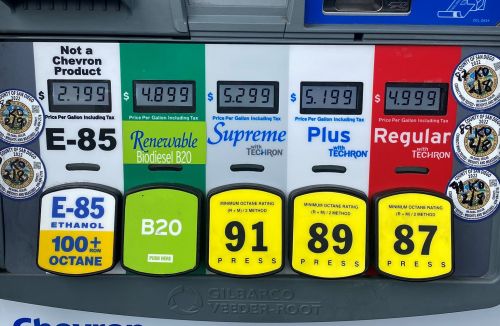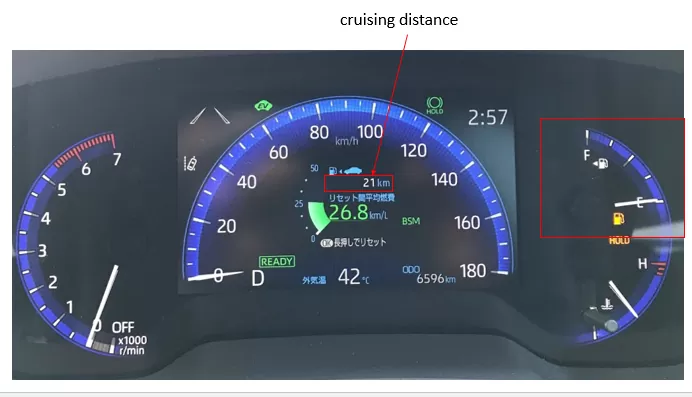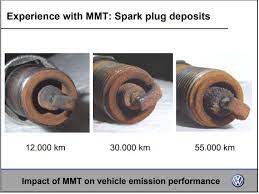What Type of Gas Does a Jeep Cherokee Take?
The Jeep Cherokee is a popular crossover vehicle known for its versatility and ability to handle various weather conditions. It is a great option for those who want a car that is not too large, but still has the capability to navigate through snow, rain, and mud.
When it comes to fuel, the Cherokee requires regular gasoline with an octane level of 87. This applies to models manufactured between 2013 and the present day, and that have 2.0, 2.4, or 3.2L engines.
Some 2.4L engines can also run on E85, which is a type of flexible fuel. It’s not recommended to use premium gasoline as it offers no added benefits for the Cherokee.
However, there are other factors to consider such as reformulated gasoline, E-85, and gasoline with additives. So let’s talk in detail!
Table of Contents
What Type of Gas Does a Jeep Cherokee Take?
The fuel type that a Jeep Cherokee requires is contingent upon the variant and engine type of the vehicle.
Generally, a majority of Jeep Cherokee models operate on regular unleaded gasoline, however certain versions may also be able to run on higher octane gasoline such as premium or mid-grade.
1. Reformulated Gasoline:
Reformulated gasoline is a type of fuel that is created to burn more efficiently and produce fewer emissions, resulting in improved air quality in areas where it is used.
Some states in the U.S. require the use of reformulated gasoline by law. Jeep is a proponent of this type of gasoline and recommends its use in the Cherokee.
All model years and engines of the Cherokee can use reformulated gasoline.
2. E-85:
E-85, also known as fuel that contains more than 15% Ethanol (E-15 or higher) can be used by Cherokees with 2.4L engines that are designed to use it.
These vehicles can be identified by a special label on the fuel filler door that says “Ethanol (E-85)” or “Unleaded Gasoline Only” and a yellow fuel cap.
If a vehicle that is not designed to use E-85 fuel is accidentally fueled with it, the engine may experience symptoms such as decreased performance or damage.

- Function in an inefficient way
- Check engine light may turn on
- Reduced engine performance
- Difficulty starting and driving in cold weather
- Increased likelihood of corrosion in fuel system components
3. Engine Oils for E-85:
If you own a Flexible Fuel Vehicle, it is recommended to use engine oils that are specifically designed for these types of vehicles.
One option for these types of oils are those made by MOPAR, which typically meet the necessary requirements.
Additionally, you should look for oils that meet the FCA Material MS-6395 standard and are API certified, as these oils provide additional protection for the engine in these vehicles.
4. Starting:
When temperatures fall below freezing, the use of E-85 fuel may not be advisable. If temperatures are just above freezing, it may take longer for your vehicle’s engine to start and it may run poorly until it warms up. In order to mitigate these issues, it is recommended to use seasonally adjusted E-85 fuel.
Additionally, using an engine block heater, if your vehicle is equipped with one, can improve the engine’s performance when it is first started and until it warms up.
5. Cruising Range:
When using E-85 fuel, you may notice an increase in fuel consumption as it contains less energy per unit volume than gasoline.

This will result in a decrease of fuel efficiency and a reduction in the distance that can be traveled on a full tank. Typically, this decrease in fuel efficiency is around 30% compared to using gasoline.
6. MMT in Gasoline:
MMT is a substance added to some gasoline to raise its octane level, often used in car racing. However, it is not recommended to add it to your Jeep Cherokee as it is not beneficial.
According to Jeep, MMT does not offer any advantages over gasoline with an octane level of 87.

Additionally, adding MMT can shorten the lifespan of spark plugs and negatively affect the performance of the emission system.
7. Materials Added to Fuel:
It is a good idea to use gasoline that has additional materials such as detergents, corrosion inhibitors, and stability additives, these types of fuels are known as Top Tier fuels and can help prevent build-up in the engine and fuel system.
Jeep recommends finding a certified Top Tier fuel retailer which can be found on toptiergas.com.
However, adding cleaning agents or other materials to the fuel yourself is not recommended, as these can contain solvents that can damage the fuel system and cause increased wear and tear.
Which Gas Is Better 87 89 Or 93?
The octane rating of gasoline is an indicator of the fuel’s ability to resist against “knocking” or “pinging” during combustion in the engine. A higher octane number indicates a greater resistance to these issues.
87 octane gasoline is the most common and budget-friendly option, also known as regular unleaded gasoline and is suitable for most vehicles.
89 octane gasoline, also known as mid-grade gasoline, is a step above regular unleaded gasoline and offers slightly better engine performance and protection.
93 octane gasoline, is a premium gasoline, is the highest octane gasoline commonly available and is intended for high-performance engines that require maximum engine protection.
It is usually safe to use regular unleaded gasoline (87 octane) in most vehicles, however, if the engine is designed to perform better with higher octane gasoline, it is recommended to use gasoline with at least the octane rating recommended by the manufacturer.
Frequently Asked Questions:
1. What kind of gas does a 2015 Jeep Cherokee use?
The 2015 Jeep Cherokee is equipped with a fuel tank that can hold up to 24.6 gallons of gasoline. The recommended gasoline for the naturally-aspirated V-6 engine is regular unleaded with an octane rating of 87 or higher.
However, the V-8 engine is designed to work best with mid-grade gasoline with an octane rating of 89, but it can also accept regular unleaded gasoline with an octane rating of 87.
2. Can I put 87 gas in my Jeep?
Yes, you can put 87 octane gasoline in a 2015 Jeep Cherokee. According to the owner’s manual and the information provided by the manufacturer, the recommended octane rating for the naturally-aspirated V-6 engine is regular unleaded gasoline with an octane rating of 87 or higher, so using 87 octane gasoline should not cause any issues.
3. Do Jeep Cherokees use regular gas?
According to the factory specifications, the Jeep Grand Cherokee is designed to run on regular unleaded gasoline with a minimum octane rating of 87.
The 2022 model of the Grand Cherokee has an estimated fuel efficiency of 19 miles per gallon in the city and 26 miles per gallon on the highway.
Related Post:







